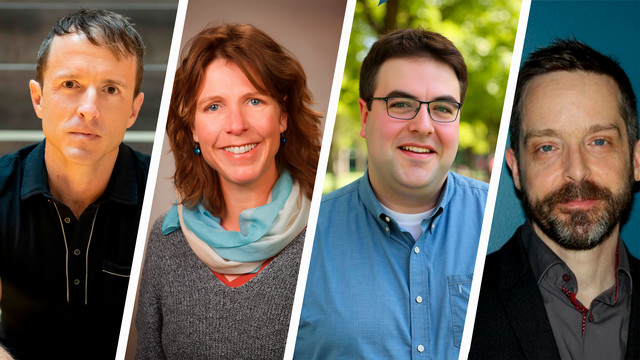Richmond faculty translators bring literature to new audiences
Research & Innovation
Literary translators take written works in one language and interpret them into another, expanding access to new audiences worldwide. The work is difficult and filled with responsibility, say the practitioners, which include about a dozen UR faculty members. Recently, four of them shared their stories with UR Now.
Kurt Beals, visiting associate professor of German studies and humanities fellow in literary translation
Kurt Beals’ new translation of Erich Maria Remarque’s All Quiet on the Western Front (W.W. Norton/Liveright, 2025) has received rave reviews. William Giraldi in The Wall Street Journal called it a “shimmering version” that “should become the standard for English readers.”
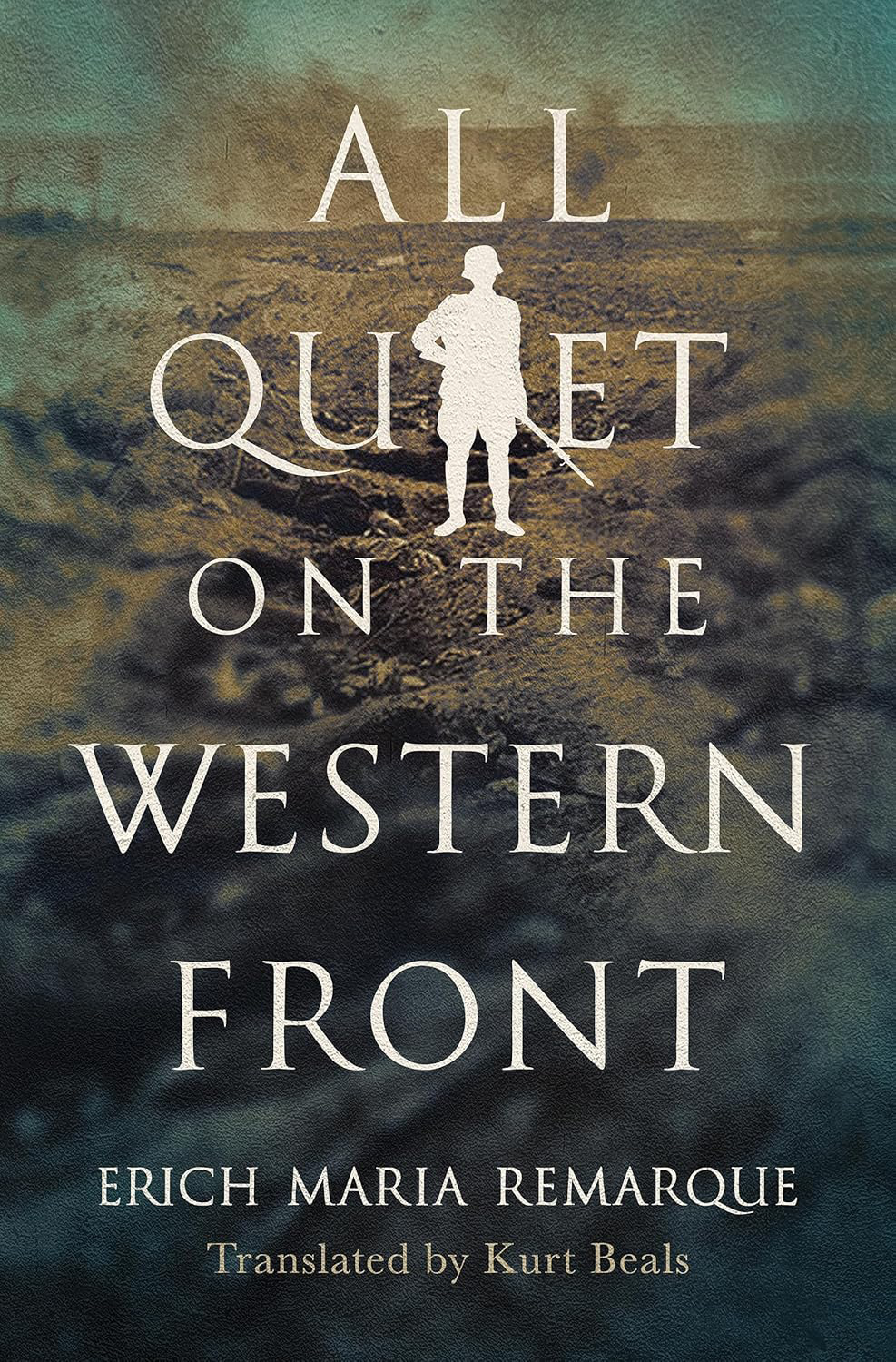
Although the book had been translated before, Beals re-read Remarque’s 1929 original in German and compared it to the popular English translation by A. W. Wheen.
“Wheen’s translation has been essentially the canonical one. I felt that his translation did some things quite well,” said Beals, a visiting associate professor of German studies and humanities fellow in literary translation. “However, I thought the dialogue didn’t capture the immediacy and the force of the original German.” He added that some of the language in the book didn’t sound like something a young soldier would say.
Additionally, in Wheen’s version, long German sentences were broken up “into little, bite-sized pieces that are easier for their readers to consume,” Beals said. “Breaking up the sentences really changes the impression that the reader gets.”
He observed that Remarque used longer, more digressive sentences in moments between battles when the main character has time to reflect on other things or daydream about life before the conflict.
“Whereas in the midst of battle, you have very short, staccato sentences that capture the abrupt brutality of war,” Beals said.
In his translation, Beals kept each sentence in German as one sentence in English, believing that each sentence was a unit of meaning, like a poetic line.
Yvonne Howell, Russian and global studies professor
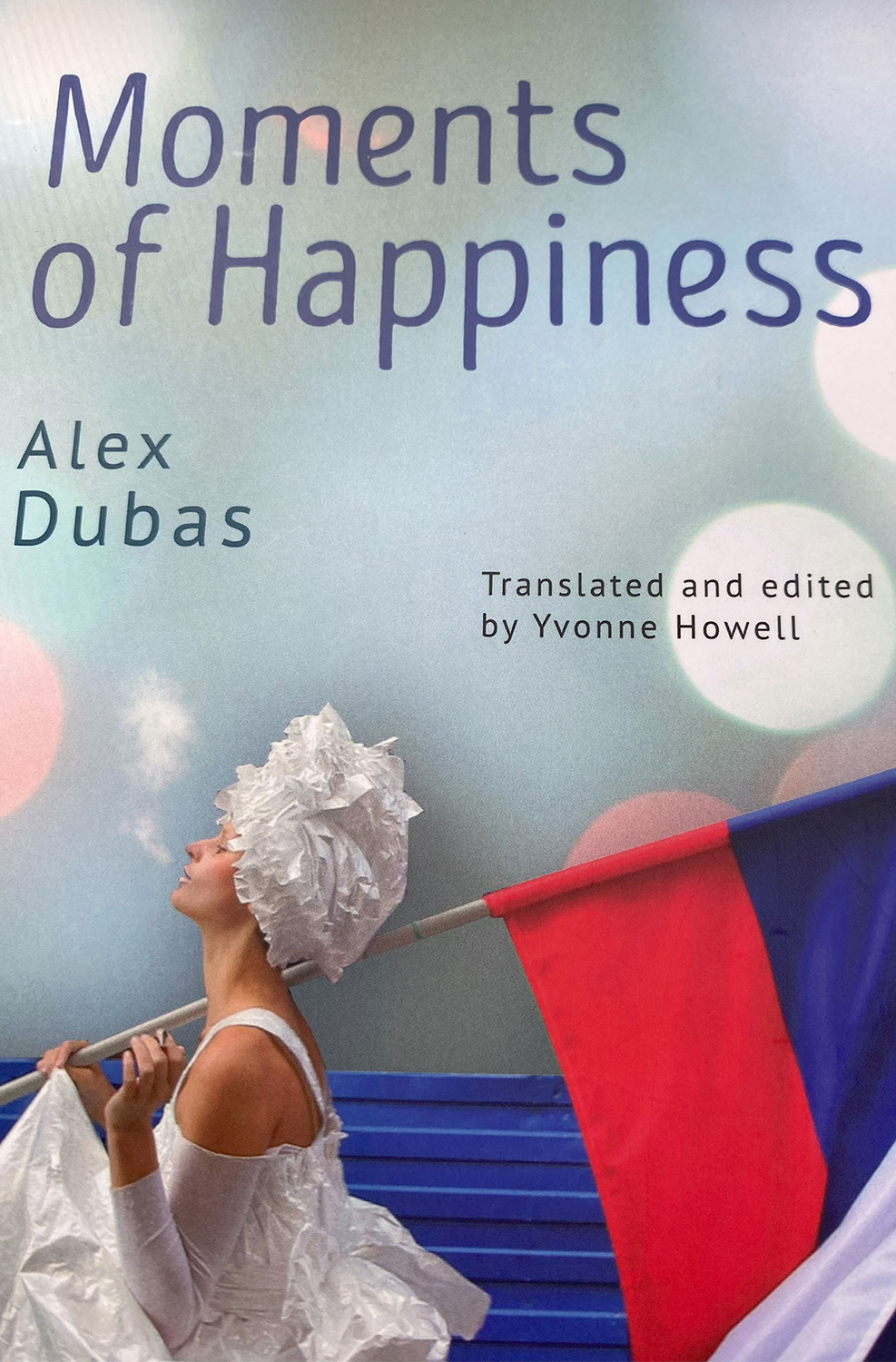
“Every translator of artistic texts will tell that you they feel a sense of huge responsibility, both to the original author’s voice and to some higher kind of truth. You wonder is this translation true to the spirit of the text?” said Yvonne Howell, a Russian and global studies professor.
Howell translates fiction and non-fiction from Russian. She started interpreting Russian poetry and popular song lyrics in graduate school.
“Poetry is the ultimate test. You know that the rhythms and rhymes that make poetry or lyrics sing in one language can’t be exactly replicated in another,” Howell said. “You have to translate both the meaning and the mood of the poem.”
Among her many books, she’s been nominated for awards for Red Star Tales (Russian Life Books, 2015), an edited volume of Russian and Soviet fiction, and Moments of Happiness (Academic Studies Press, 2021) by Russian-Latvian radio talk show host Alex Dubas, who asked his celebrity guests and listeners to describe a moment of real happiness in their lives. The resulting publication was culled from submissions by over two million listeners.
She enjoyed trying to capture the wide range of voices in the Dubas book, including service men, young mothers, Soviet-era grandmas, actors and actresses, and students. Translation involves extensive research, she said.
"I think the biggest thing most people underestimate is how translating individual words is the least of what you do as a translator. Your real task is to visualize, hear, and feel the entire reality that one word (ship, window, flower, freshly-baked bread) originally looked like, tasted like, or felt like. Then find the best equivalent to convey tearing off a piece of that kind of bread, or lifting up the double pane of that kind of window, and so forth. A translator ultimately recreates a world, not a text."
Michael Marsh-Soloway, teaching faculty of literatures, languages, and cultures and director of the Global Studio
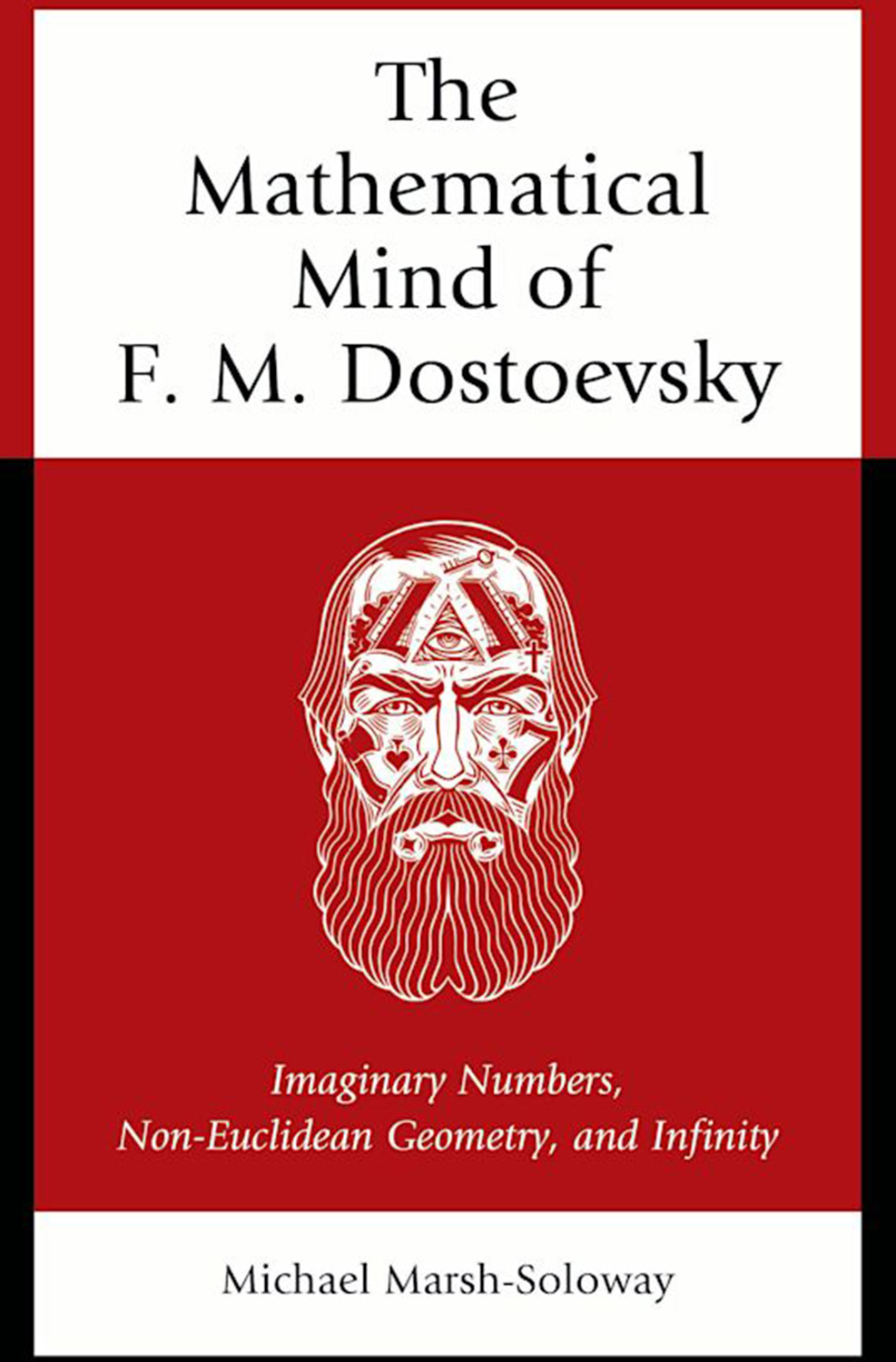
Michael Marsh-Soloway mainly translates Russian stories, novels, and poems into English but has also tried his hand at Polish literary works.
He recently published The Mathematical Mind of F.M. Dostoevsky: Imaginary Numbers, Non-Euclidean Geometry, and Infinity (Lanham: Lexington Books, 2025). The book explores subtexts in works by Dostoevsky that connect to his years as a student at the Main Engineering School in St. Petersburg from 1838 to 1843.
“There are elements in his literature that show advanced mathematical knowledge. Albert Einstein even reported that he was inspired by Dostoevsky after winning the 1921 Nobel Prize in Physics,” Marsh-Soloway said.
When Dostoevsky was arrested in 1848 for his role in the Petrashevsky Circle, many of his books and journals were burned by the Russian Secret Police. To address the gap in primary source material from the period of Dostoevsky’s education, Marsh-Soloway sought to reconstruct the curriculum that the author engaged at the Main Engineering School and that foundationally helped to shape his artistic imagination and creative process.
By conducting archival research in Russia, including in Siberia, where Dostoevsky was imprisoned, Marsh-Soloway found records of the author’s textbooks, graded transcripts, examinations, and military drills. Compiling and translating these materials alongside Dostoevsky’s published prose, newspaper articles, diary entries, and private letters, Marsh-Soloway identified interdisciplinary parallels between his engineering studies and popular literary works.
“Reading Russian handwriting from before the 1918 spelling reforms certainly proved quite difficult at times. Working with authentic materials and content preserved on legacy media formats, including low-quality microfiche, gave me special appreciation for the critical work that librarians, museum curators, and archivists perform to transcribe, digitize, and safeguard artistic and historical materials for future generations,” he said.
Brian Henry, English and creative writing professor
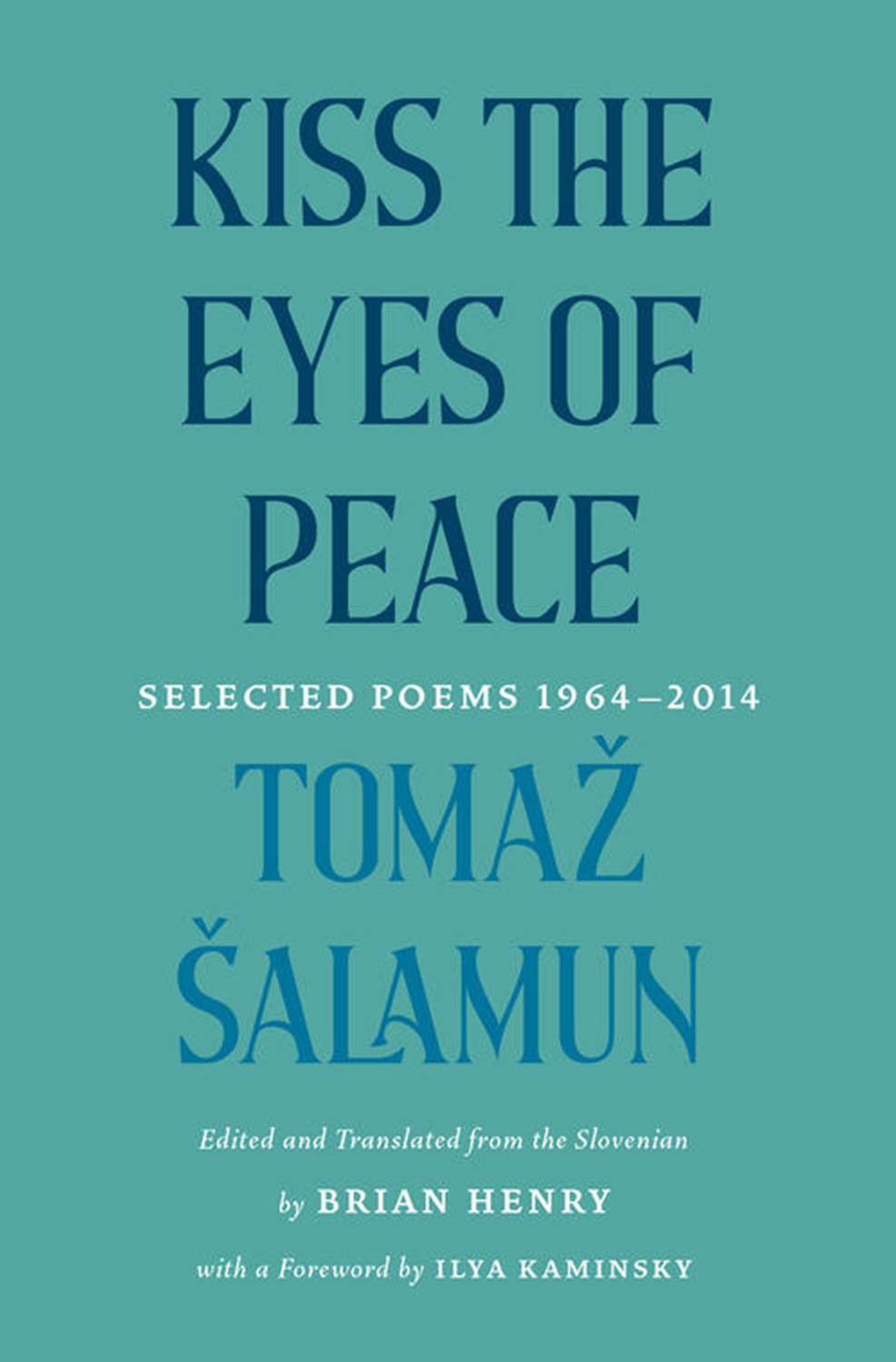
Brian Henry, an English and creative writing professor, has written 12 books of his own poetry, a prose book about translation, and has translated nine books from Slovenian.
“I was first drawn to translating Slovenian poetry because of Tomaž Šalamun, whom I met when I was 25 and who became a close friend,” Henry said. He had to teach himself the language.
The first book he translated into English was Šalamun’s Woods and Chalices, which Harcourt published in 2008. In May 2024, Milkweed Editions published Šalamun’s Kiss the Eyes of Peace: Selected Poems 1964-2014, which he edited and translated. The book was one of five shortlisted for the 2025 Griffin Poetry Prize.
Henry’s next project will be to translate Šalamun’s final book of poems, which was published in Slovenia last year, 10 years after his death.
He has also translated the works of other Slovenian poets. He won the Best Translated Book Award from Open Letter Books in 2010 for his translation of Aleš Šteger’s The Book of Things.
“Because I’m a poet, I won’t publish a translation unless it works as a poem in English. I don’t want to put out lifeless English versions of a vibrant Slovenian poem.”

